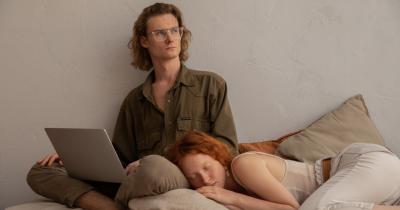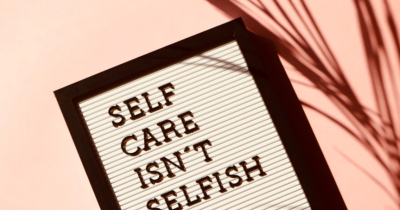For some, freelancing is something extra on the side of full or part time work and it can be difficult to balance the two, especially if there is very little cross-over. While it may seem the more work you have, the better, it is important not to over-commit yourself, as you could risk jeopardising the quality and integrity of the finished product.
ARE YOU CULTIVATING YOUR OWN TOXIC WORK ENVIRONMENT
No matter the industry, every freelancer needs a space to work on their business. Whether you’re hunting down new clients, chasing invoices or working on your site, we all require a little corner to focus. As more people join the ranks of freelance and remote workers due to Covid-19; we ask the question: “Is your new admin space as stressful as the office you just escaped?"
HOW IS YOUR FREELANCE TEAM'S MENTAL HEALTH?
Many freelancers were used to working from home before COVID-19 hit. Does this mean that they were better equipped to cope with lockdown than others? Not necessarily.
THE IMPACT REMOTE WORK HAS ON MY MENTAL HEALTH
The impact remote work has on my mental health is a complicated and nuanced issue. I currently work as a freelance artist (amongst other services). I use the dining room table to make my art, the garage for printmaking and a shared desk in the home office for my writing. Outside of my home, I occasionally facilitate workshops for a London charity where I work on site as part of a larger team. It’s a balancing act between flying solo, working with others and collaborating digitally.
HOW TO HARNESS THE POWER OF REJECTION
Many people choose to go freelance because of the freedom and independence that comes with the role. However, anyone who has freelanced will understand the dreaded fear that comes with the territory when starting out. The fear of taking a holiday in case you miss an opportunity, the fear of where the next cheque is coming from to pay the rent, the fear of never working again… Well, fear not!
SELF-CARE FOR THE SELF-EMPLOYED
We don’t pay attention to self-care until something serious happens. As a freelancer, taking some time to indulge in some ‘me’ time can be challenging, but it is a necessity.
THE IMPACT OF HUSTLE CULTURE
Is there such a thing as a work-work balance? Like the thrill of a giant roller coaster, chasing down clients, securing new projects and reaching new career heights is an exciting ride, but after a while, that queasy feeling catches up with you and the rush wears off. Since becoming a freelance writer, I’ve never experienced that pre-work Sunday night anxiety, I tend to feel it from Monday through to Friday! The stress of my workload whilst on the lookout for new opportunities weighs heavy on my mind. While I always allocate time to job searching, hustling to find new clients has a tendancy to get in the way of the work that I already have going on.
FREELANCING AND MENTAL HEALTH: A THERAPISTS VIEW
So you’ve finally gained enough clients to start working for yourself and the thought of full-time freelancing fills you with excitement. But a few months or even years down the line, a sense of loneliness starts to creep into your life. A couple of weeks without work starts to make you question whether freelancing was the right choice in the first place. Juggling multiple clients brings on a suffocating feeling. The unpredictability of income causes anxiety in the middle of the night. Last year, 1.4 million people were referred to NHS mental health therapy, but what role do self-employment and freelance work play in this surge?









